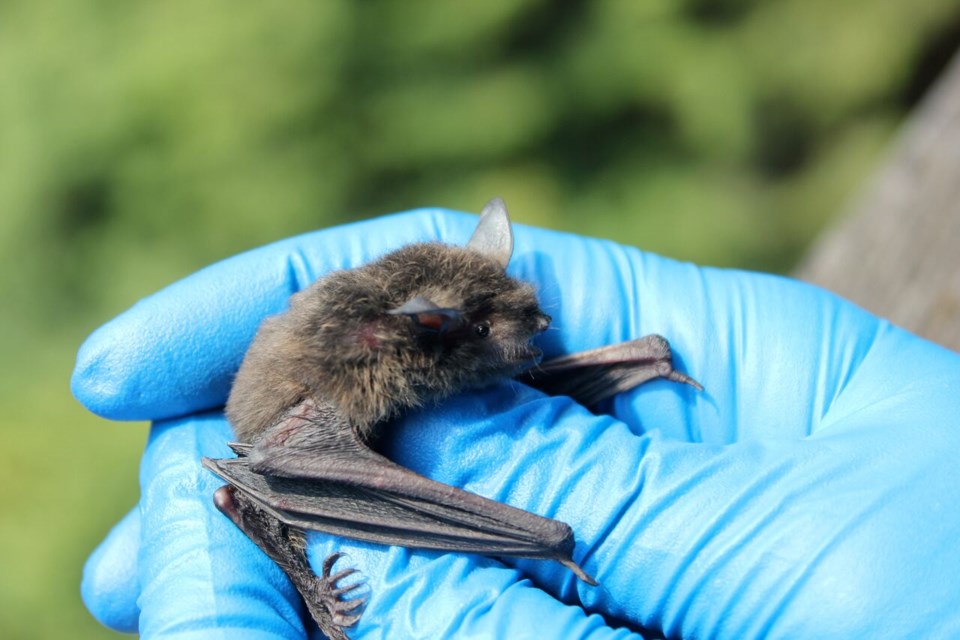Today is Bat Appreciation Day and Metro Vancouverâs regional bat coordinator wants people to celebrate.Ìý
âApril is a greatÌýtime of the year to observe bats, as they are now beginning to emerge from hibernation,â says Danielle Dagenais, who coordinates programs to help local bats. âInternational Bat Appreciation Day is also an excellent time to learn about the role bats play in nature.â
Dagenais offers these fun bat facts:
- We have 10 species of bats in the Greater Â鶹´«Ã½Ó³»Region.ÌýÌýThey all eat insects and arachnids.
- BC's largest bat is the Hoary Bat, with a wing span of about 39cm (15") and weighs as much as a dinner fork.
- Some species of bats can live up to 40 years.
- Although bats use echolocation, they can see very well in the dark.
- Bats are the only mammal naturally capable of true and sustained flight.
- Bats are clean animals, grooming themselves almost constantly.
- Bats do not chew or scratch wood or wires like rodents do.Ìý Their tiny, sharp teeth are used to crunch hard bodied insects.
- There are over 1,300 known species of bats in the World.ÌýÌýNearlyÌý70% of these bats are insectivores.
- Bats play a very important role in our ecosystem by eating insects, including insect pests of our forests, crops and gardens.
- Bats save farmers billions in pesticide application and crop lost each year.
Bats in Our Community
- Female bats form maternity colonies in April and May each year in preparation for their reproductive season.
- Bats may roost in natural and artificial sites such as crevices, trees, buildings, bridges, or bat boxes.Ìý These habitats are critical for female bats as they only have 1 young each year.
- Bats will feed over fresh and salt water.Ìý Take a sunset stroll to observe bats in your neighbourhood.
What You Can Do to Help
- Report known roost sites, dead bats, and unusual late winter bat behavior (e.g., bats flying during the daytime) to [email protected] or 1-855-922-2287 ext. 11.
- If you have installed a bat house, register your bat house at bcbats.ca and join the BC Annual Bat Count in June.Ìý
- Work with local or regional groups to conserve bat habitats (e.g., old trees and buildings, water bodies) on your property and in the community.
- Be a bat advocate, learn about these fascinating animals and educate your friends and families about their benefits, and the threats they face
BatsÌýare important.Ìý They are in trouble.Ìý Bats need your help.Ìý Learn more about bats. VisitÌýÌýfor more information.
Ìý



